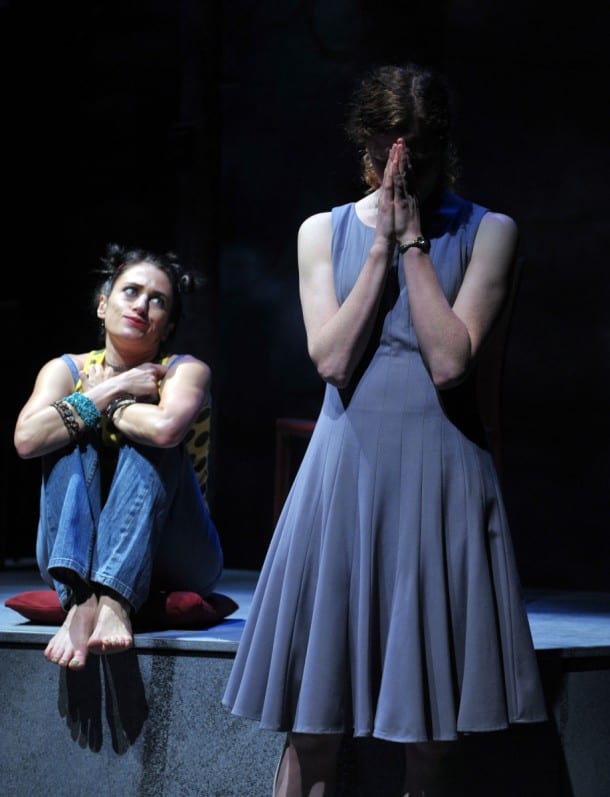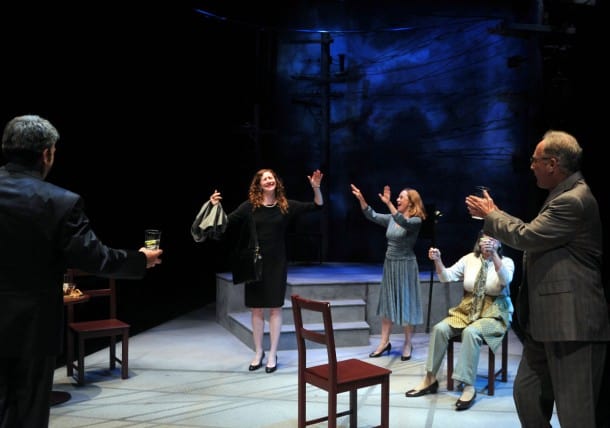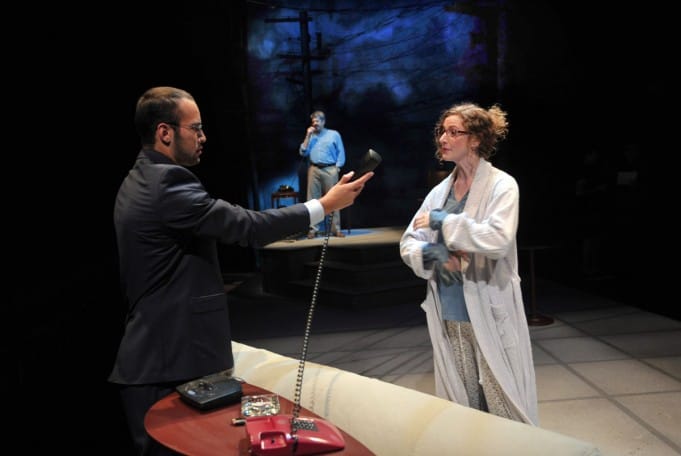One view of After the Revolution (Aurora Theatre Company) is that it’s about red diaper babies. Another is that it’s about handling psychological earthquakes that crack the foundations of everything you know was true. Emotional and partisan, with a cast of characters that feel like extended family, the play functions as a mirror that throws our intensely polarized politics back at us.
All these characters are infused with something so true that you open your heart to them.
Playwright Amy Herzog has penned a story about the family of Joe Joseph, a pinkish lefty who stood up to the House Un-American Activities Committee. As much a psychological thriller as a history piece, the material gives a warm sense just how hopeful Communism was in the first half of the 20th century and why thousands of credible people supported it. The story focuses on third generation Emma (Jessica Bates), who just graduated from law school. Fact and fiction come together, as Emma heads the Joe Joseph Foundation, a social justice organization devoted to bringing justice to Mumia Abu-Jamal, whose death sentence was just recently commuted in 2012. Her world is rocked when her father Ben (Rolf Saxon) reveals that her grandfather may have given state secrets to the Russians.
Emma is surrounded by family whose hearts are as much on their sleeves as their politics. This sense of heart redeems many of the flaws in the materials.
Actor Rolf Saxon makes Ben the equivalent of EveryFather, who is as flawed as he is heroic. His ability to go from adoring dad to exasperated parent humanizes his one-dimensional politics.

Victor Talmadge is the Uncle Leo you wished you had. More than anyone, he helps Emma navigate through the revelation about her grandfather
The funniest performances of the play go to Sarah Mitchell as sister Jess. Up to this point, she’s been the outsider, working on rehab. She’s the character whose perceptions you trust the most.
All these characters are infused with something so true that you open your heart to them. These are all people you know, love, argue about and argue with. Such is not the case, about the main character Emma – which is the central weakness of the production.
If you’re 50+ (old enough to remember the McCarthy Era or old enough to remember family and teachers complaining about it), you might find this tediously familiar. Those too young might miss the point while they check the glossary in the back of the program for entries like “blacklisted,” “communism,” and “Joseph McCarthy.” Given that the McCarthy Era might be less than engaging, the psychological resonance becomes all important – and this is where the drama fails.

Why Emma would so unthinkingly accept her family’s politics remains a mystery. Much goes into building her up as a smart woman – but we never see her testing the basis of her beliefs until her grandfather’s past as an Russian informer is revealed. Why she is so psychologically devastated remains a mystery. Part of this might reflect a numbness from the recent years of data dumps by Assange, Anonymous, Snowden and company that has no place in this play. Even still, it doesn’t explain Emma’s psychological paralysis. Since the rationale for her prolonged collapse seems implausible, the first act becomes way too long, and leaves you looking to all the other characters, including her well-drawn boyfriend, Miguel, played by Adrian Anchondo.
ALSO BY CY ASHLEY WEBB: Audra McDonald at SF Symphony Opening Gala (Review)
If you are intensely interested in McCarthy era politics, this play, which runs through September 29, is well worth taking in. Otherwise, you may wish to wait until the Aurora’s next offering, A Bright New Boise, which opens in November.



